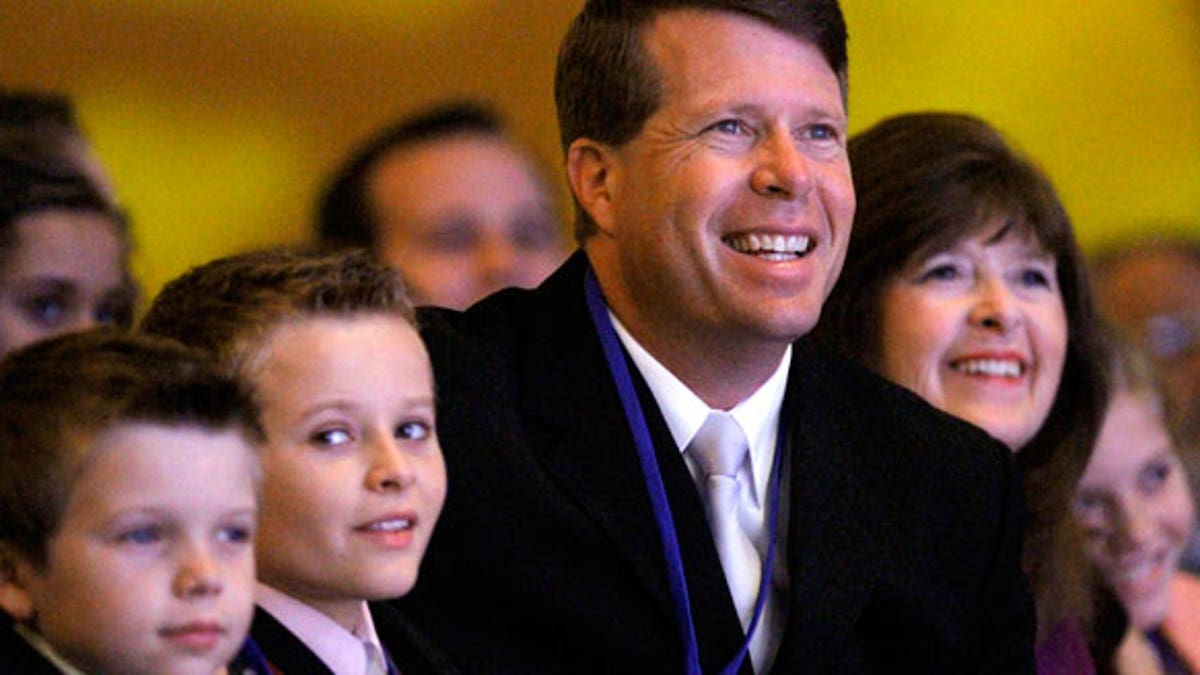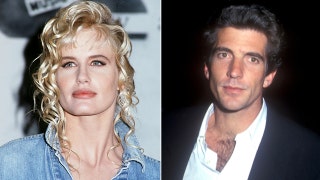
(AP2010)
Jim Bob Duggar may have fired up Rick Santorum during last week’s Iowa caucuses, but the Republican presidential candidates are steering clear of bringing more of Hollywood into their campaigns for now -- and with good reason, experts say.
The candidates aren’t seeking celebrity support at this point of the race because they are concerned that the celebs could alienate potential voters and cause a ruckus on the campaign trail, political insiders tell Fox411.
Right before the Iowa caucuses, Kelly Clarkson received a lot of heat for her endorsement of Ron Paul. The candidate has happily discussed Clarkson’s Twitter endorsement with reporters, but his campaign has yet to reach out to the singer to ask her to stand up for him in New Hampshire or any of the primaries yet to come. Nor has Paul trotted out reported supporters Vince Vaughn and Chuck Norris.
Supermodel Cindy Crawford has expressed her interest in Mitt Romney, but she has not been recruited to put on a parka and knock on doors.
The overall reasoning the Republican candidates have for keeping celebrities out of their race right now is that they are often more trouble than they are worth.
“There are a lot of negatives,” explained David Perlmutter, professor of political communication at the University of Iowa’s School of Journalism. “Celebrities are viewed differently by different groups of people. One person’s beloved celebrity is another person’s embarrassment. I have known politicians in the past who have had to tell people, ‘please do not publicly endorse me.’”
Celebrities come with baggage. They’re never an army of one. They bring their friends. They bring their entourage. They bring added security risks and rowdy crowds.
Republican races, too, have never been as heavy on the celebrities as Democratic races, likely because Hollywood skews liberal. But maybe the Republicans have learned a lesson or two about the danger celebs have brought for the Dems. In 1988, Rob Lowe, who was campaigning for eventual Democratic nominee Michael Dukakis, videotaped himself having sex with two women, one of whom was underage, the night before the Democratic National Convention.
In 2004 John Kerry was famously supported by Michael J. Fox, Ben Affleck, John Cusack and Bruce Springsteen -- but to such an extent that some experts believe the endorsements became a distraction for voters in his race against President George W. Bush.
President Obama faced his own hurdles in 2008. “When Obama had all of those celebrity endorsements and everyone came out for him in that will.i.am video, his opponents levied the charge at him that he was more of a celebrity than a candidate,” said J. David Cisneros, an assistant professor of communication studies at Northeastern University.
But the value of a celebrity endorsement shouldn’t entirely be discounted. The Duggars’ supported Rick Santorum in a big way in Iowa last week, which could have accounted for part of his late surge. And no one will forget Oprah Winfrey’s endorsement of Obama in 2008, which was like a blessing from on high.
“Living in a celebrity culture and getting celebrity endorsement might get people to see the candidate in a different light and provide a transference of a celebrity’s ethos. That was the Oprah effect in 2008,” Cisneros told Fox411.
“But celebrity endorsements don’t change people’s minds about a candidate’s electability. They contribute to more of the viability and inevitability of the candidate. This year a celebrity endorsement might not change people’s opinions about Mitt Romney, but it might contribute to people considering him as a potentially viable alternative or contribute to the idea that he can compete in the general election.”
The candidate who survives the primaries may ultimately take greater advantage of celebrity endorsements when the process is less about wooing and more about convincing America that he is a viable alternative to Obama.
“We might see some celebrity endorsements after South Carolina or after the primaries,” Cisneros said. “But you have to think about it from the celebrity’s point of view, too. They want to be sure when they get in. They don’t want to endorse a loser.”














































